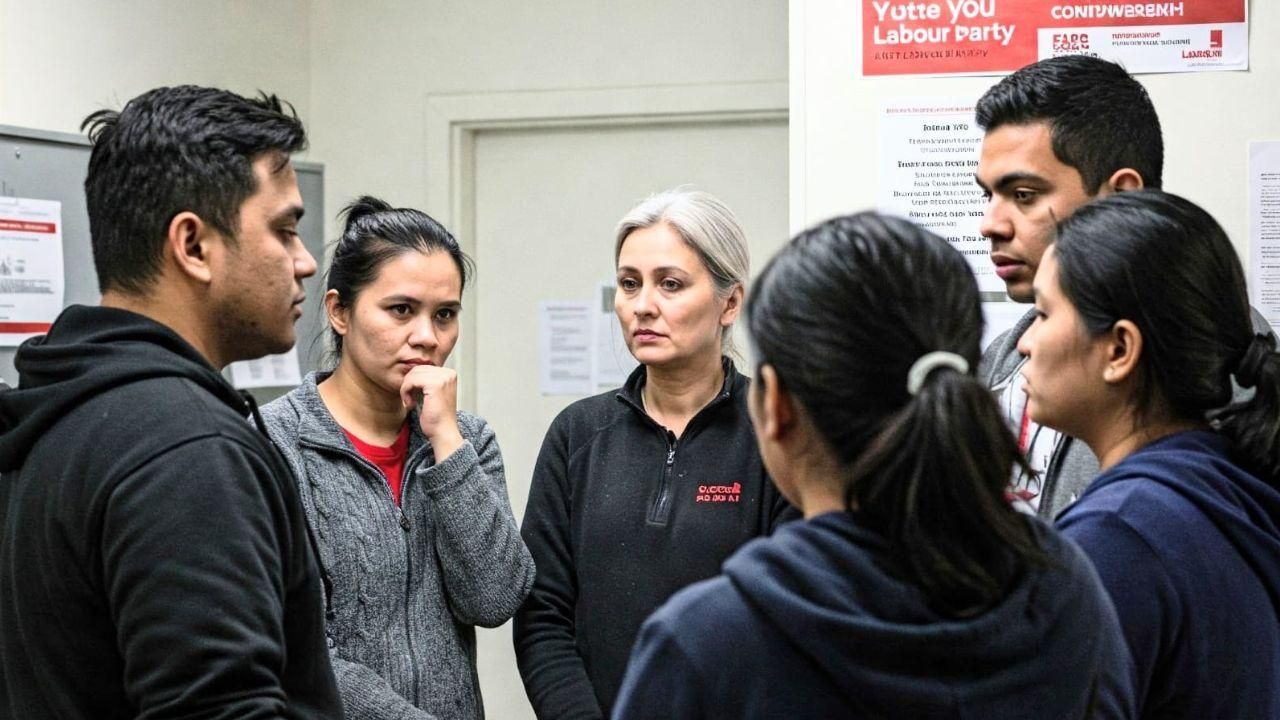A sweeping overhaul of the care worker visa system is being considered by Home Secretary Yvette Cooper, as the Labour party seeks to combat widespread exploitation and abuse of migrant workers within the UK's care sector. This proposed crackdown comes amid alarming reports of a "vanishing" migrant scam, where individuals, often from Bangladesh, India, Pakistan, and African nations, pay exorbitant fees to secure UK visas only to find themselves without jobs, underpaid, or subjected to appalling working conditions, Daily Dazzling Dawn understand.
The existing care worker visa system, initially implemented to address urgent staffing shortages during the COVID-19 pandemic, has been marred by allegations of abuse. Labour MPs and unions have voiced serious concerns that unscrupulous employers are exploiting their sponsorship privileges, effectively trapping vulnerable workers in a cycle of financial and professional hardship.
The Scale of the Problem:
Reports indicate that migrant workers are frequently charged thousands of pounds for certificates of sponsorship, with some paying as much as £13,500.
A Unison report detailed cases where workers were left without employment for over a year despite promises of secure care jobs.
Evidence suggests that many workers are subjected to wage withholding, underpayment, and demands to pay employer taxes in cash, practices Unison describes as "bordering on racketeering."
The sheer volume of care worker visas issued has raised concerns, with former Home Office insiders noting a disconnect between visa numbers and actual job vacancies.
In 2023, 100,000 care workers brought 120,000 dependents to the UK, significantly contributing to the record net migration of 906,000.
The original impact assessment for the visa scheme in 2020, predicted 10-20,000 workers would be eligible for this visa. The actual numbers have drastically exceeded this.
Impact on Existing Care Workers and Their Families:
For those care workers who have recently arrived from Bangladesh, India, Pakistan and African countries, and their families, these potential changes create significant anxiety and instability. Many have invested substantial sums of money and placed their trust in the UK system, only to face the possibility of job insecurity and potential visa revocation.
Families who have recently established themselves in the UK, with children enrolled in schools, face the threat of disruption and potential deportation.
The financial burden of paying for visas and settling into a new country, combined with potential joblessness or underpayment, creates immense stress and hardship.
The emotional toll of being exploited and living in "horrendous" conditions can have severe consequences for mental health and well-being.
Impact on the UK Care Sector:
The proposed crackdown, while necessary to address exploitation, could have significant implications for the UK's already strained care sector.
The sector, which relies heavily on migrant workers, could face further staffing shortages if visa regulations are tightened.
The potential revocation of sponsorship rights for rogue employers could lead to job losses for existing migrant workers.
However, a sector-wide sponsorship scheme, as proposed by Unison, could provide greater stability and protection for migrant workers, while also improving overall standards within the care sector.
The government is trying to stop the abuse, but also needs to avoid making the already bad care sector staffing shortages worse.
Proposed Solutions and Government Response:
Home Secretary Yvette Cooper is considering several measures to address the issue, including:
- Decoupling sponsorship from individual employers and tying it to the care sector as a whole.
- Revoking the care worker visa entirely.
- Bringing control of sponsorship into the Home Office's remit.
- Requiring employers to prove they have attempted to recruit domestically before hiring overseas workers.
- Barring employers who repeatedly break immigration or employment laws from hiring overseas workers.
- Financial penalties for rogue employers.
The government has stated that its upcoming Immigration White Paper will outline a "comprehensive plan" to reform the immigration system, linking immigration, skills, and visa systems to boost the domestic workforce and reduce reliance on overseas labor.
The Labour MP Neil Duncan-Jordan has suggested the Fair Pay Agency being set up by the Employment Rights Bill could be given powers and oversight to regulate any new visa system.
As the Labour party navigates the complexities of immigration reform, the well-being of vulnerable migrant workers and the stability of the UK's care sector hang in the balance.








.svg)


